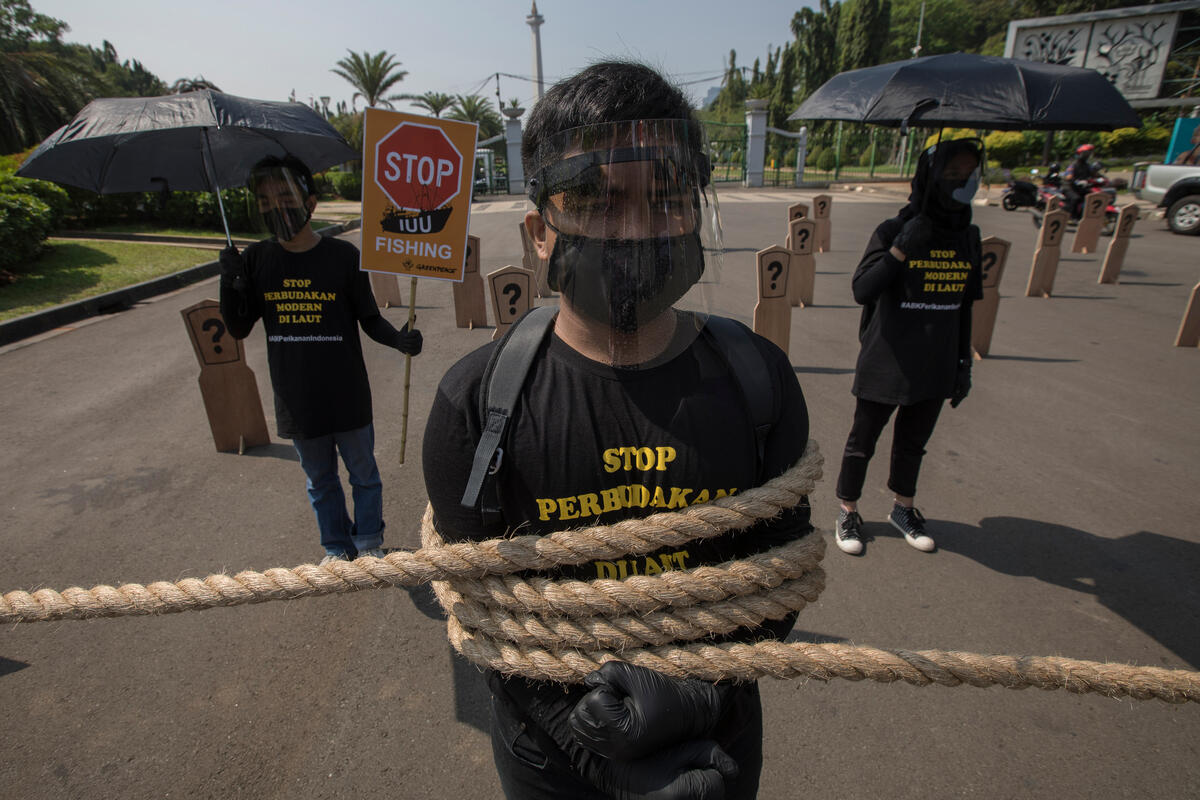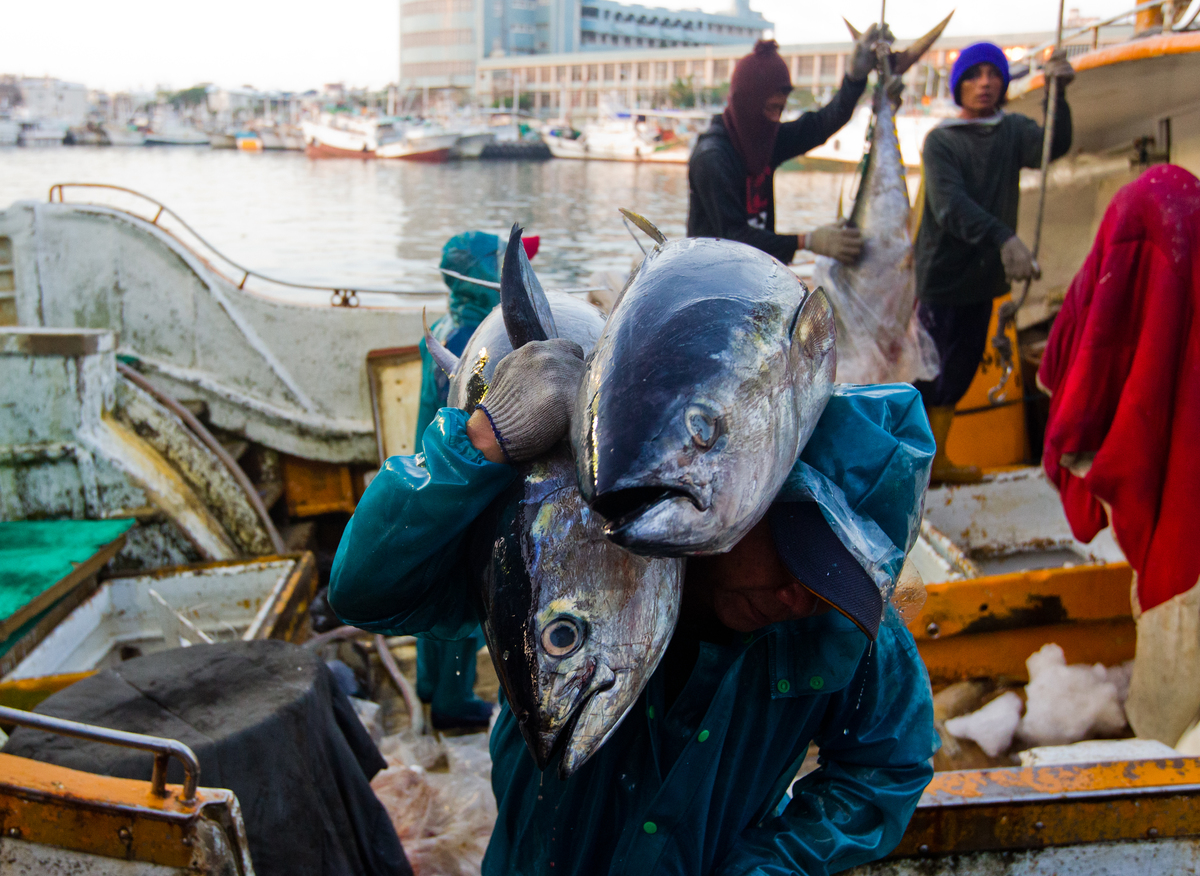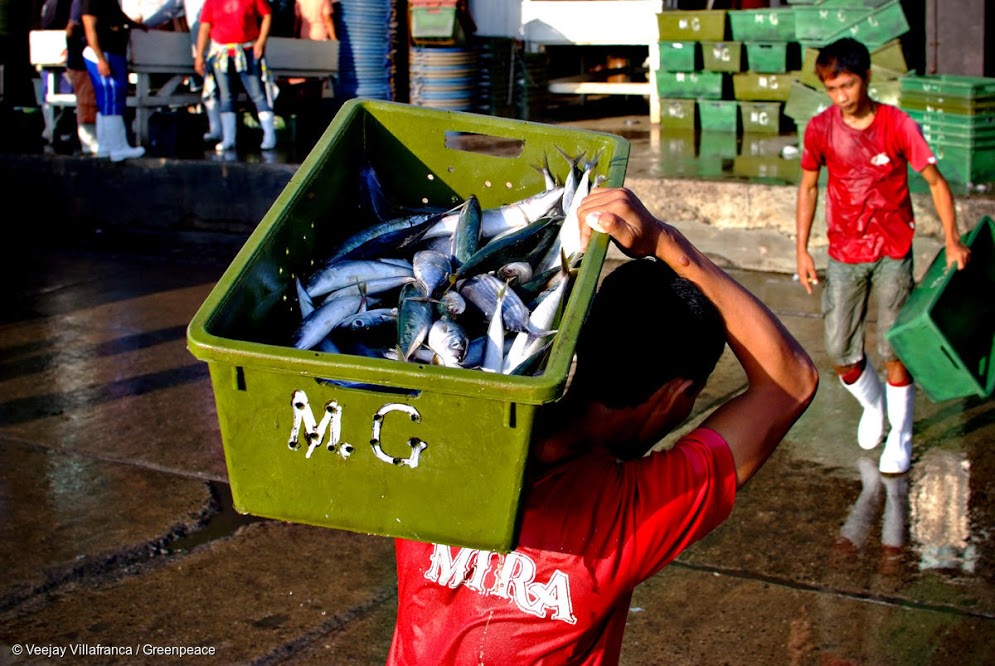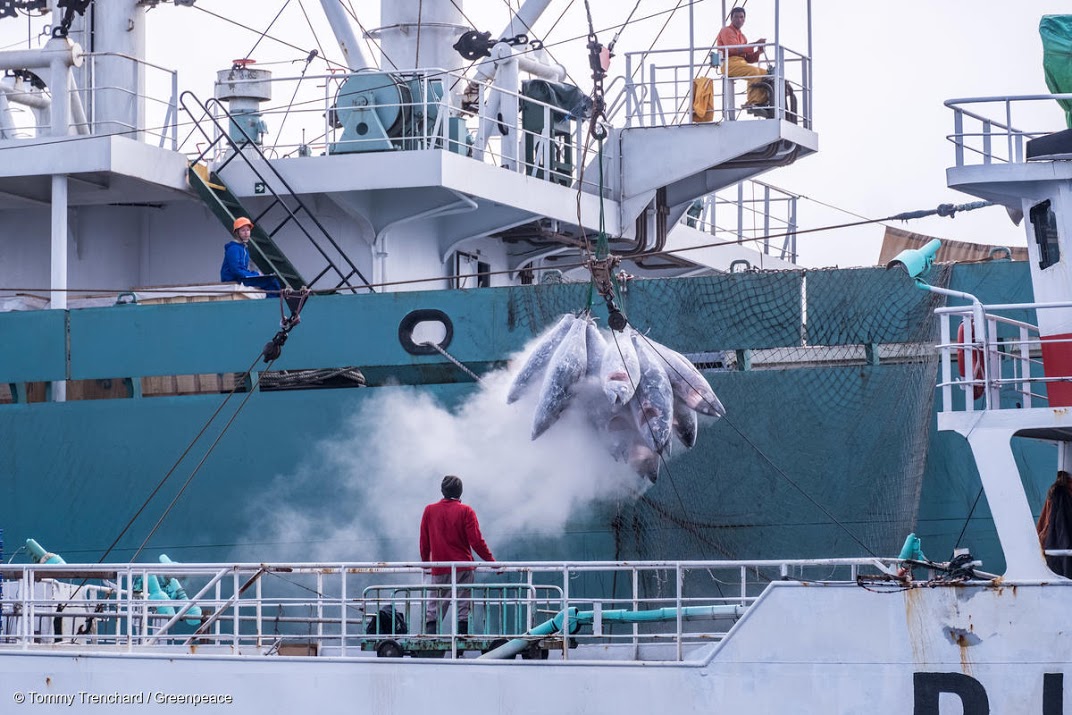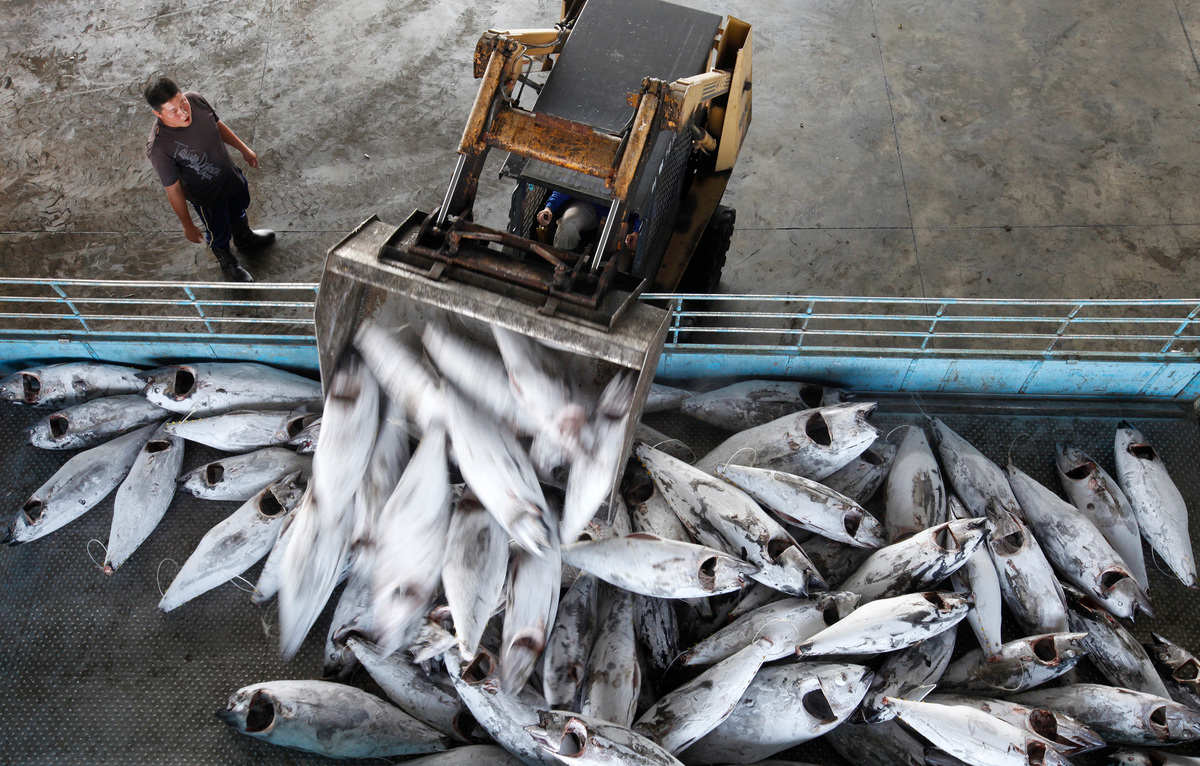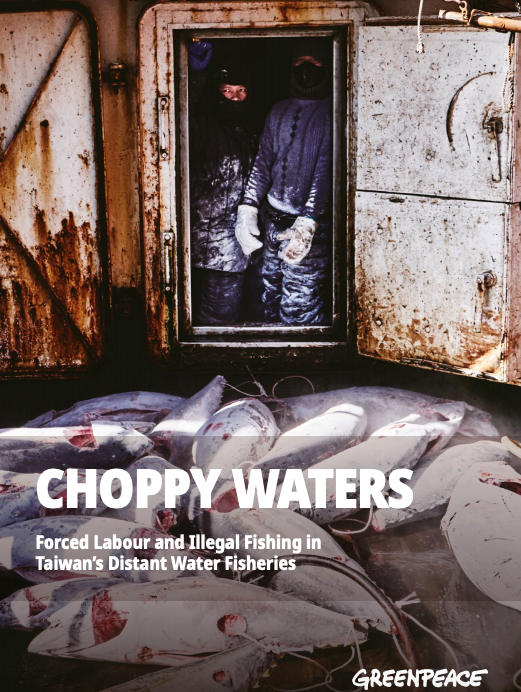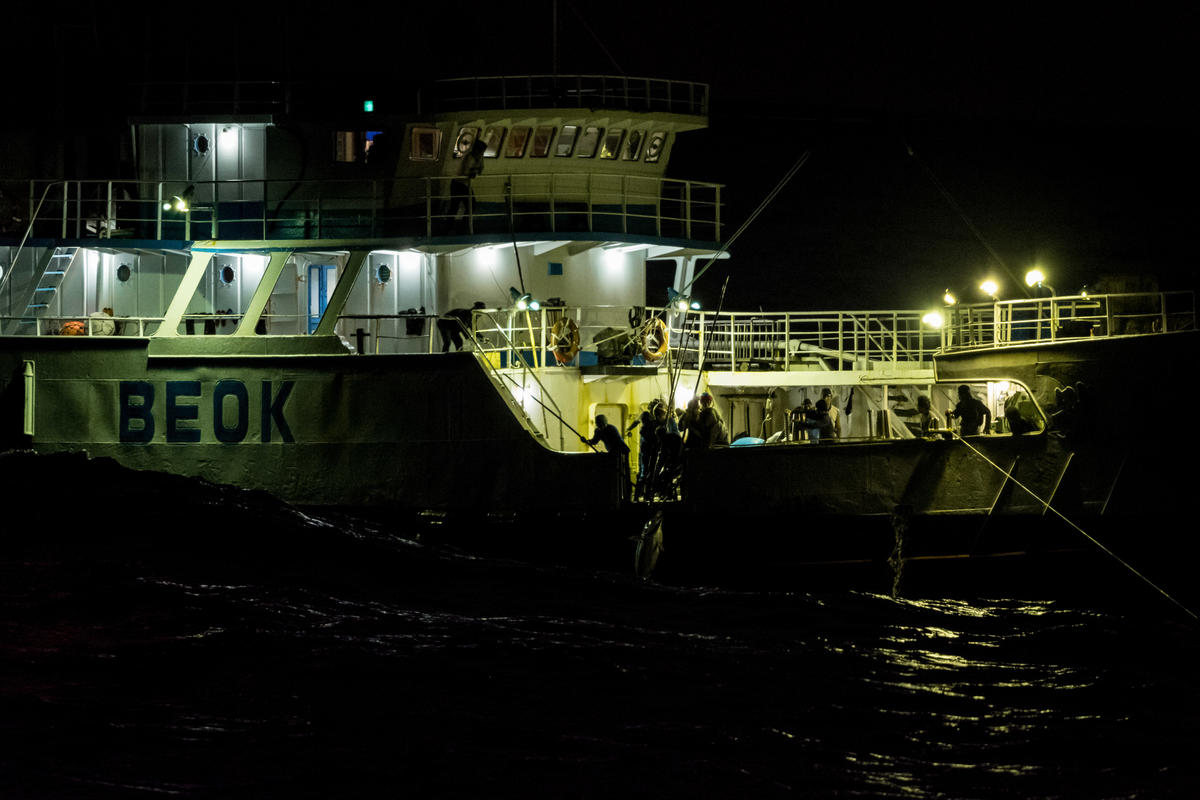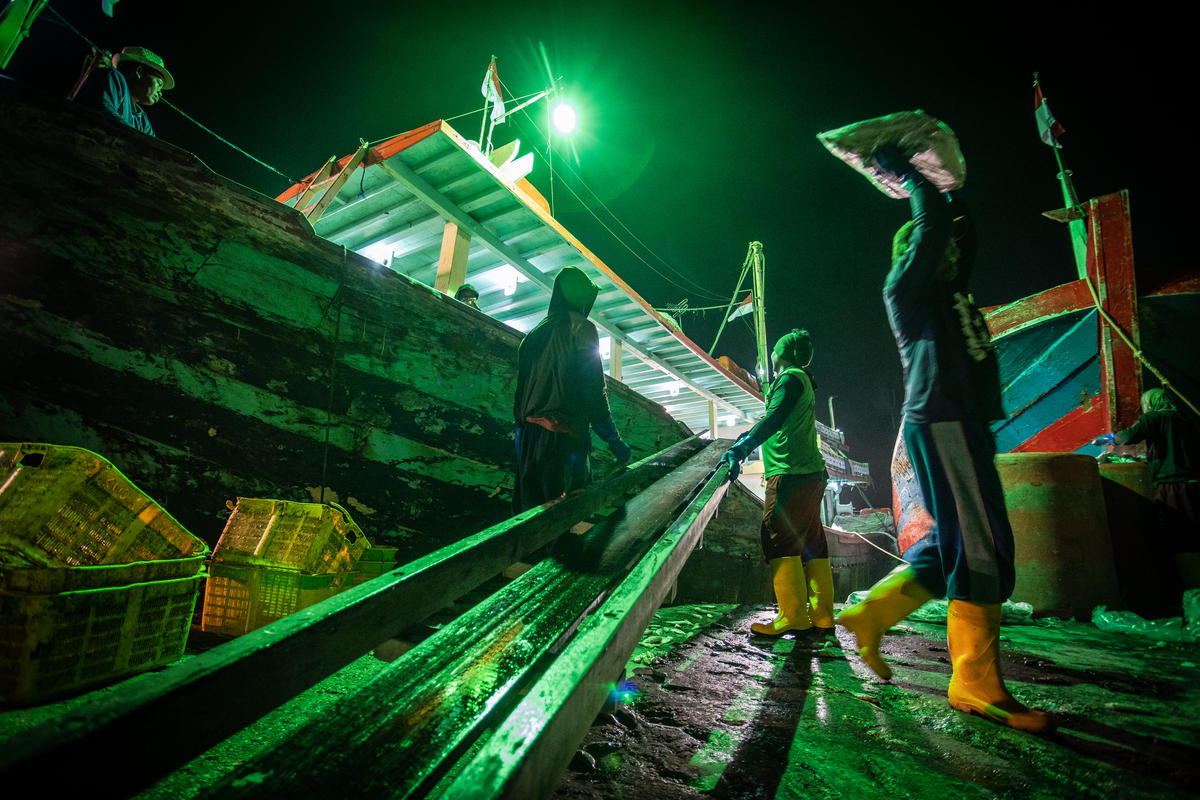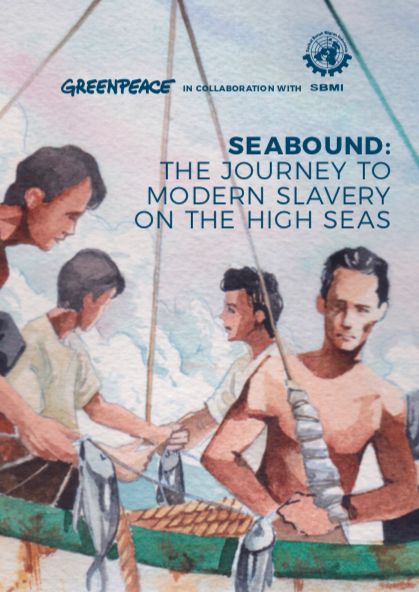All articles
-
Why are Indonesian fishing crews dying?
With easy access to mobile technology, migrant fishers are able to document their mistreatment and often, evidence of illegal fishing and bycatch, such as shark finning. It’s led to an outpouring of attention and renewed focus on forced labour, human trafficking, and other forms of exploitation that have been commonplace on industrial fishing vessels for…
-
Greenpeace Southeast Asia on the latest case of Indonesian migrant fishers onboard Chinese fishing vessel Liao Yuan Yu 103, requesting immediate rescue by Indonesian authorities
In the past six years, Greenpeace Indonesia and Indonesian Migrant Workers Union (SBMI) have received 338 labor abuse complaints of Indonesian migrant fishers onboard foreign fishing vessels. It is important to note that this kind of case is recurring because of the lack of proactive and effective actions taken by Indonesian government in the last…
-
Better Normal in the Seafood Industry
Modern slavery and human rights abuses at sea are real and happening today, and the tuna industry is at the centre of this global scandal.
-
Greenpeace demands sustainability and due diligence on human rights for tuna industries in Southeast Asia
Lack of support and accountability for migrant fishing crew remain a failing issue, with only 20 percent of major southeast Asian tuna brands providing measures to reduce, or eliminate modern slavery at sea, according to the latest cannery ranking report by Greenpeace Southeast Asia.
-
Who is FCF? Taiwan’s biggest tuna trader linked to forced labour & illegal fishing
Clear links between a Taiwanese seafood trading company and appalling cases of forced labour involving vulnerable migrant workers from Southeast Asia, as well as illegal fishing practices have been highlighted in a new report by Greenpeace East Asia
-
Choppy Waters: Forced Labour and Illegal Fishing in Taiwan’s Distant Water Fisheries
This report is based on a 2019 investigation conducted by Greenpeace East Asia, involving interviews with migrant fishers from three fishing vessels that were either flagged or linked to Taiwan. We found that IUU fishing and forced labour, allegedly, still continue to happen aboard Taiwanese fishing vessels operating in the Atlantic Ocean.
-
Taiwan’s major global tuna supplier shows “blind spots” to illegal fishing practices and modern slavery
Labour and human rights abuses continue to exist in Taiwan’s distant water fishing fleets, with one major global seafood trader showing its “blind spots” towards practices such as shark finning, forced labour, and illegal transhipment.[1] According to the new Greenpeace East Asia investigation, migrant fishers, who worked onboard vessels that were either flagged or linked…
-
Five reasons modern slavery at sea is still possible in 2019
In a new report, “Seabound: The Journey to Modern Slavery on the High Seas”, Greenpeace Southeast Asia spoke to many migrant fishers about their experiences in order to present a snapshot of the living and working conditions onboard distant water fishing (DWF) vessels, according to the fishers themselves.
-
New testimonials suggest “modern slavery” for Southeast Asian migrant fishers working out at sea
13 foreign distant water fishing vessels have been accused of abusing migrant fishers from Southeast Asia, in cases so severe it has been characterised by many as “modern slavery”
-
Seabound: The Journey to Modern Slavery on the High Seas
For several years now, international media has shone a spotlight on the inhumane working conditions of migrant fishers from Southeast Asia. The vessels they work on reportedly use destructive, illegal, and unreported methods, which take a heavy toll on the health and viability of our already fragile oceans.


